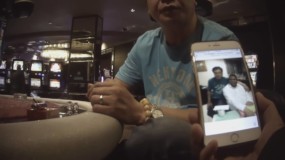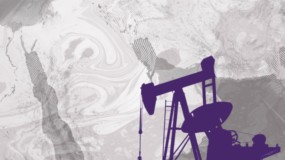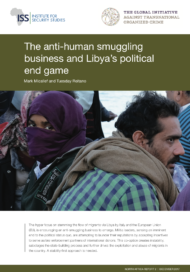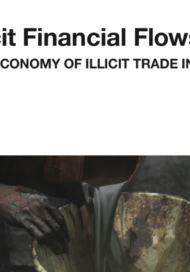Posted on 06 Oct 2013
The long overdue legislative and presidential elections in Guinea Bissau that had been scheduled for the 24th November, have now been indefinitely postponed. Delays in agreeing a way forward on voter registration and diaspora inclusion contributed to a stagnation in the transitional process that has been in place since the military coup in April 2012. Although the recent ECOWAS regional summit hinted at the infeasibility of the election date, no new date was definitively decided, and senior sources in Bissau are now working on the basis of the last Sunday in February as the new election date.
Guinea-Bissau is notorious for potentially being Africa’s first “narco-state”, since the country’s fragile state institutions have been undermined by corruption linked to the Andes to Europe cocaine trade. Both the April 2012 coup, and the two that had gone before it, are commonly understood to have linkages to power struggles that were in part motivated by the desire to secure control over the lucrative cocaine trade, with the highest levels of government and the military being involved. Trafficking in illicit narcotics in Guinea-Bissau may have substantially dropped since the United States DEA sting operation earlier in the year that resulted in the arrest of naval chief, Rear Admiral Bubo Na Tchuto (see article above), but without any effort by the state to address the impact of criminality on the governance process, or genuine efforts to build the capacity of state institutions to deliver services to its people, Guinea-Bissau has continued to enlarge its role as an organized crime hub for other criminal markets. This impacts the stability and development of the country.
The decline in the cocaine trade along well-established trafficking routes appears to have been replaced by the movement of counterfeit pharmaceuticals and the trafficking of humans for the purposes of enslavement or sexual exploitation, potentially with the tragic results seen in the recent discovery of some 90 migrants in the desert near Niger. In mid-October, public disorder broke out in Bissau when a Nigerian citizen was accused of attempting to abduct a child for the purposes of organ trafficking. Unconfirmed rumours then spread of a child’s corpse being found with organs removed. The Nigerian citizen was beaten and killed by a group of people around the Bandim Market area. Violence then shifted to the Nigerian embassy, when a radio station falsely reported that organ traffickers sought refuge there. The violence was quelled by the ECOMIB peacekeeping mission but has resulted in heightened tensions in the capital.
Illegal deforestation, usually by Chinese nationals, continues to grow at an alarming rate in the south of Guinea-Bissau. Credible reports suggest that villages have been razed and people forced to flee from their homes when loggers arrive, whilst there is some evidence to suggest that members of the armed forces have been involved in facilitating the trafficking of uncertified timber. A sharp downturn in the cashew nut export industry, the country’s main economic staple, has meant that local logistics and supply chain firms have turned instead to facilitating the transportation and export of illegally obtained hardwoods.
A governance vacuum has resulted as the transitional government and international community continue to procrastinate over the electoral process, and subsequently all non-humanitarian international assistance is frozen. Meanwhile the growing number and diversity of the illicit flows traversing the country indicate that Guinea-Bissau is seen as a viable trafficking ‘pit stop’ between Nigeria or South America on the way to the Sahel region, the Canary Islands or Southern Europe. The cocaine traffickers that were residing in Bissau at the time of the sting operation have largely moved to Guinea-Conakry, meaning a shift in supply chain geography, but small-scale ingested trafficking via scheduled airline services to Europe continues on a small scale. A recent Security Studies Institute report has linked cocaine trafficking in Guinea-Bissau to organised crime groups including Al-Qaeda in the Islamic Maghreb (AQIM), Hezbollah, Calabrian mafias and paramilitary terrorist organisations from Northern Ireland.



